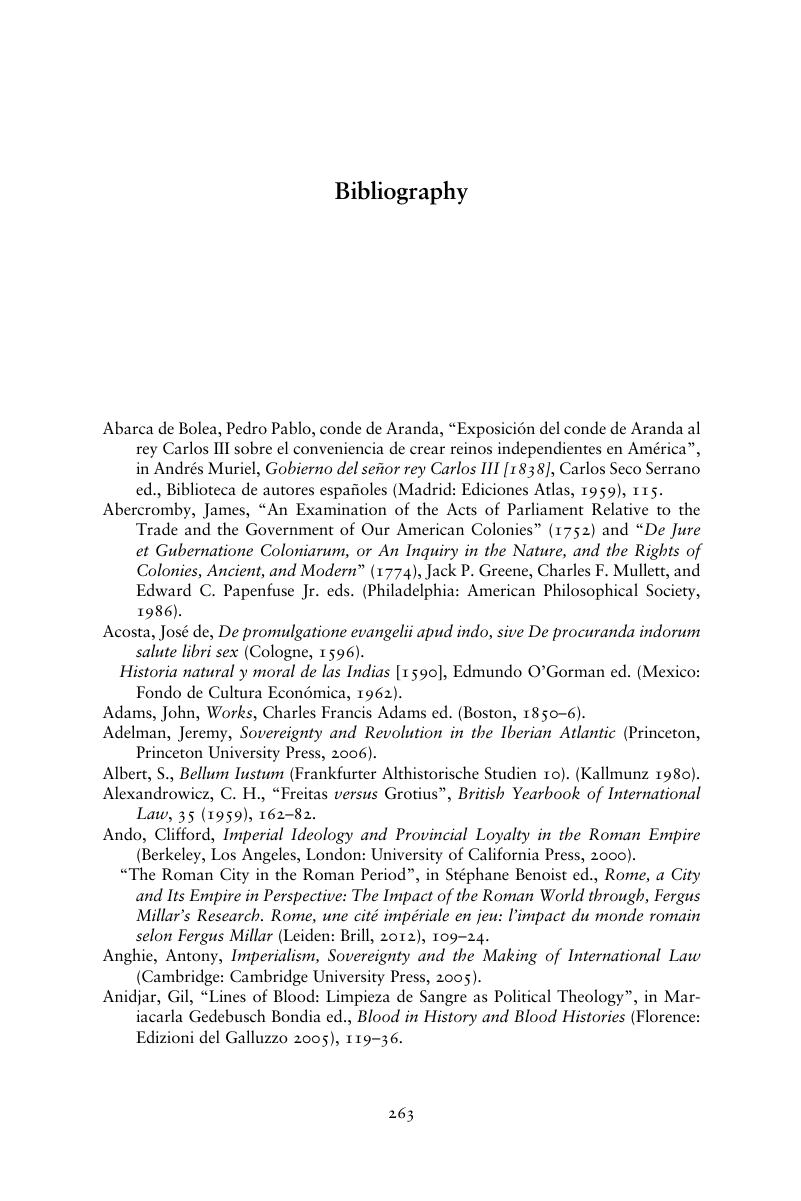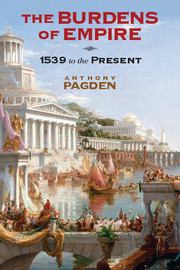Book contents
- Frontmatter
- Dedication
- Contents
- Preface
- Acknowledgements
- Introduction: Anatomy of Empire from Rome to Washington
- 1 Defending Empire: The School of Salamanca and the ‘Affair of the Indies’
- 2 ‘Making Barbarians into Gentle Peoples’: Alberico Gentili on the Legitimacy of Empire
- 3 The Peopling of the New World: Ethnos, Race, and Empire in the Early-Modern World
- 4 Conquest, Settlement, Purchase, and Concession: Justifying the English Occupation of the Americas
- 5 Occupying the Ocean: Hugo Grotius and Serafim de Freitas on the Rights of Discovery and Occupation
- 6 Cambiar su ser: Reform to Revolution in the Political Imaginary of the Ibero-American World
- 7 From the “Right of Nations” to the “Cosmopolitan Right”: Immanuel Kant's Law of Continuity and the Limits of Empire
- 8 “Savage Impulse-Civilized Calculation”: Conquest, Commerce, and the Enlightenment Critique of Empire
- 9 Human Rights, Natural Rights, and Europe's Imperial Legacy
- Bibliography
- Index
- References
Bibliography
Published online by Cambridge University Press: 05 March 2015
- Frontmatter
- Dedication
- Contents
- Preface
- Acknowledgements
- Introduction: Anatomy of Empire from Rome to Washington
- 1 Defending Empire: The School of Salamanca and the ‘Affair of the Indies’
- 2 ‘Making Barbarians into Gentle Peoples’: Alberico Gentili on the Legitimacy of Empire
- 3 The Peopling of the New World: Ethnos, Race, and Empire in the Early-Modern World
- 4 Conquest, Settlement, Purchase, and Concession: Justifying the English Occupation of the Americas
- 5 Occupying the Ocean: Hugo Grotius and Serafim de Freitas on the Rights of Discovery and Occupation
- 6 Cambiar su ser: Reform to Revolution in the Political Imaginary of the Ibero-American World
- 7 From the “Right of Nations” to the “Cosmopolitan Right”: Immanuel Kant's Law of Continuity and the Limits of Empire
- 8 “Savage Impulse-Civilized Calculation”: Conquest, Commerce, and the Enlightenment Critique of Empire
- 9 Human Rights, Natural Rights, and Europe's Imperial Legacy
- Bibliography
- Index
- References
Summary

- Type
- Chapter
- Information
- The Burdens of Empire1539 to the Present, pp. 263 - 282Publisher: Cambridge University PressPrint publication year: 2015



